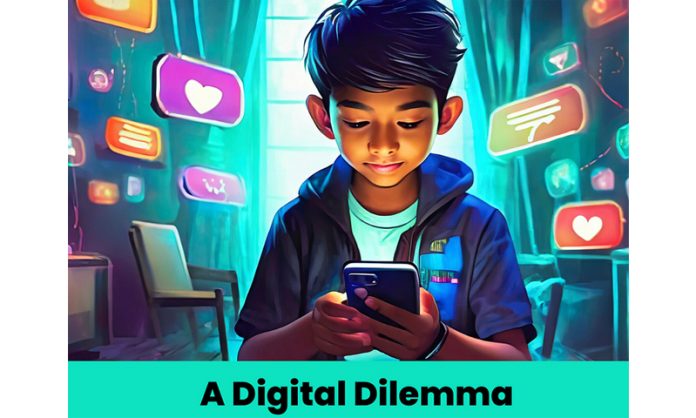In an age where digital technology permeates every aspect of our lives, concerns regarding its impact on our children’s development have reached an alarming crescendo. A recent survey conducted by Baatu Tech, a leading smart parent solution company, has unveiled startling statistics that highlight the pervasive issue of digital addiction among children aged 5 to 16 years. With approximately 60 percent of children exhibiting behaviours indicative of potential digital addiction, it is evident that we are grappling with a crisis that demands urgent attention and effective intervention strategies.
The findings of the survey shed light on the multifaceted risks associated with heightened screen exposure during formative years. From poor sleep quality and reduced physical activity to social withdrawal and diminished academic performance, the ramifications of excessive screen time are profound and far-reaching. As parents struggle to navigate the complex landscape of digital consumption, with a staggering 85 percent expressing difficulties in managing their children’s online content, we must acknowledge the gravity of the situation and take proactive measures to address it.
One of the most alarming revelations of the survey is the extent to which children are exceeding recommended screen time limits on a daily basis, with an alarming “70-80 percent” exceeding these thresholds. This overindulgence is fuelled primarily by two dominant platforms: gaming and social media. While these platforms offer avenues for entertainment and social interaction, they also present significant risks, including exposure to inappropriate content and potential addiction.
The COVID-19 pandemic has significantly contributed to the rise of digital addiction among children. As schools transitioned to online learning, parents were left with no choice but to provide their children with mobile devices for educational purposes. However, once children had access to these devices, there was little control over their usage time. This issue was further compounded for working parents who struggled to monitor their children’s screen time, as their wards had unrestricted access to mobile devices throughout the day. Even though the pandemic has subsided, schools continue to rely on online technologies for various purposes such as assignments, report cards, schedules, notifications, and presentations. As such, it is crucial to recognize that the onus of responsibility does not solely rest on the shoulders of parents. While parental guidance and supervision play a pivotal role in shaping children’s digital habits, broader societal efforts are essential to mitigate the adverse effects of excessive screen time. Educational institutions, policymakers, and technology companies all have a role to play in fostering a healthier digital ecosystem for our children.
Another key finding of the survey is the underutilization of parental control features, with only 10 percent of parents currently employing these tools. This represents a significant opportunity for intervention. By harnessing the power of parental control features and implementing strategies to limit screen time, parents can exert greater control over their children’s digital consumption habits. Moreover, fostering open communication channels with children about the importance of balanced screen time and the potential risks associated with excessive usage is paramount.
Educational institutions must integrate digital literacy programmes into their curricula to equip students with the skills necessary to navigate the digital landscape responsibly. Policymakers must enact legislation that promotes responsible digital practices and holds technology companies accountable for safeguarding children’s online well-being. Technology companies, in turn, must prioritise the development of tools and features that empower parents to manage and monitor their children’s digital activity effectively.
Furthermore, fostering a culture of digital mindfulness within families and communities is essential. Encouraging alternative activities such as outdoor play, hobbies, and family bonding time can help reduce reliance on screens and promote healthier lifestyle habits. By fostering a holistic approach to childhood development that prioritises physical activity, social interaction, and mental well-being, we can mitigate the negative effects of digital addiction and cultivate a generation of resilient and digitally literate individuals.
Trending Now
E-Paper


